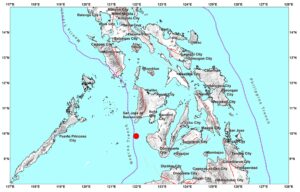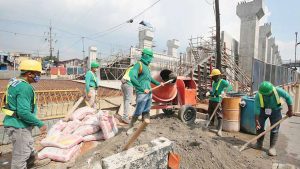By Beatriz Marie D. Cruz, Reporter
LONG-DELAYED infrastructure projects in the Philippines could gain momentum with the passage of the Accelerated and Reformed Right-of-Way (ARROW) Act, according to analysts.
Republic Act No. 12289, signed last month by President Ferdinand R. Marcos, Jr., amended the Right-of-Way Act of 2016 to make property acquisition faster, more transparent, and predictable.
Under the new law, agencies and private concessionaires must make upfront deposits on properties slated for acquisition — including crops, trees, and improvements — equivalent to 15% of their market value.
“By standardizing compensation and requiring upfront deposits, both landowners and developers gain greater transparency and security,” said Jamie S. Dela Cruz, research manager at KMC Savills.
“For the property sector, this translates into clearer growth corridors and faster value appreciation in areas near planned infrastructure,” she added.
“Developers, investors, and businesses can plan with more certainty, while landowners benefit from more predictable compensation.”
Joey Roi H. Bondoc, director and head of research at Colliers Philippines, said the amended RoW Act will support real estate expansion outside Metro Manila.
“You cannot achieve both infrastructure implementation and decentralization if you cannot acquire the properties needed to build infrastructure,” he said.
Analysts have noted developers’ growing interest in regional areas such as Pampanga, Cebu, Bacolod, and Davao, amid favorable economic conditions and talent pools.
However, Ms. Dela Cruz cautioned that uneven implementation at the local level and potential speculative price surges in acquisition areas remain risks.
Right-of-way bottlenecks have long hindered infrastructure projects, affecting property developers’ expansion plans.
Beyond solving RoW bottlenecks, the government should strengthen urban planning and zoning to prevent congestion and ensure that infrastructure projects support balanced growth, she said.
She also stressed the need for more efficient permits, land titling, and property registration, as well as affordable housing for middle-income and working-class households.
“It should also ensure that public-private partnerships in key growth areas align infrastructure with commercial, industrial, and residential demand,” she added.
“If these issues are addressed together, the ARROW Act could become a genuine catalyst not only for infrastructure delivery but also for a more competitive, resilient, and inclusive Philippine property market,” Ms. Dela Cruz said.


















